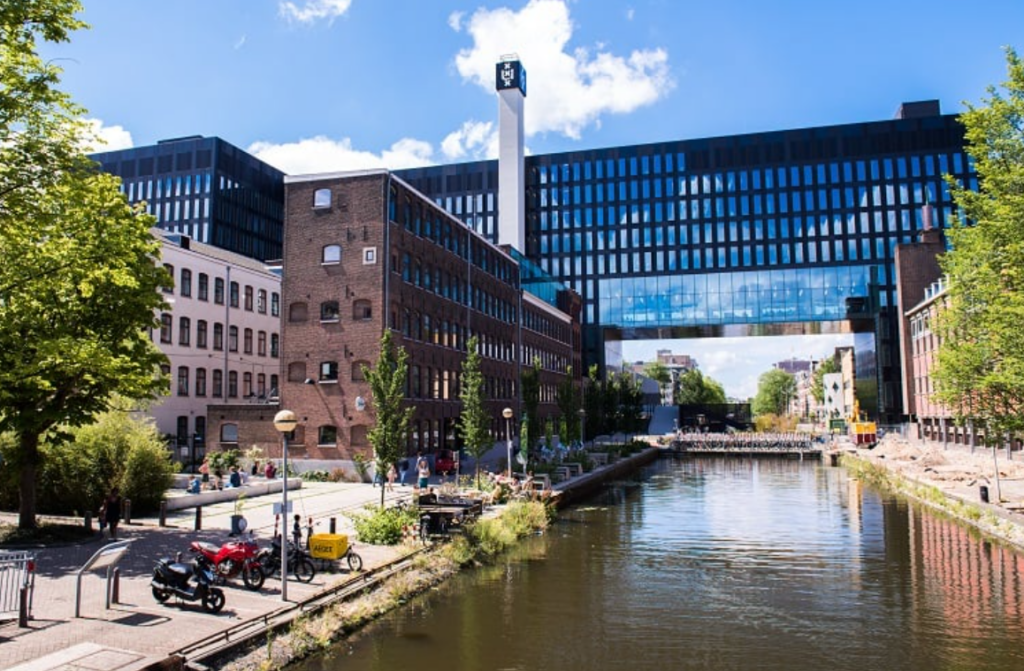
Study in Netherlands
The Netherlands is a highly sought-after destination for international students due to its top-ranking universities, innovative teaching methods, and multicultural environment. Known for its high quality of life and progressive approach to education, the Netherlands offers numerous programs taught in English and excellent career opportunities after graduation.
Why Study in the Netherlands?
High-Quality Education
The Netherlands boasts some of the world’s top universities, such as Delft University of Technology, University of Amsterdam, and Utrecht University.
Dutch institutions emphasize interactive and student-centered learning.
English-Taught Programs
The Netherlands is a leader in offering English-taught degree programs, with over 2,000 options across disciplines.
Affordable Tuition Fees
Tuition fees are relatively affordable compared to other top destinations like the US and UK.
Scholarships and grants are widely available for international students.
Multicultural and Inclusive Environment
The Dutch are known for their openness and fluency in English, making it easy for international students to integrate.
The country is home to students from over 160 nationalities.
Strong Career Prospects
The Netherlands has a thriving economy and is home to many multinational companies.
Graduates can benefit from the Orientation Year Visa, which allows them to seek work in the country for up to a year after graduation.
Structure of Higher Education in the Netherlands
Research Universities
Focus on academic research and theoretical learning.
Offer bachelor’s, master’s, and Ph.D. programs in various fields.
Universities of Applied Sciences (Hogescholen)
Emphasize practical, career-oriented education.
Strong industry links and internship opportunities.
University Colleges
Offer small-scale, liberal arts education with an interdisciplinary approach.
Private Institutions
Provide specialized programs, often in business or arts.
Popular Fields of Study
Engineering and Technology
Business and Management
Environmental Science and Sustainability
Social Sciences and Humanities
Arts and Design
Admission Process
Research and Selection
Use platforms like Study in Holland to explore programs and universities.
Application Requirements
Academic transcripts, proof of English proficiency (IELTS, TOEFL), CV, and motivation letter.
Some programs may require entrance exams or portfolios.
Apply Through Studielink
Applications to Dutch universities are submitted via the centralized Studielink system.
Visa Process
Non-EU students need a student visa (MVV) and a residence permit.
Cost of Studying in the Netherlands
Tuition Fees
EU/EEA students: €2,314 per year (standard tuition).
Non-EU/EEA students: €6,000–€20,000 per year, depending on the program.
Living Expenses
Estimated €800–€1,200 per month for accommodation, food, transport, and personal expenses.
Scholarships
Available through organizations like the Holland Scholarship and university-specific grants.
Student Life in the Netherlands
Campus Facilities
Universities offer well-equipped libraries, laboratories, and recreational facilities.
Social and Cultural Opportunities
Students can join clubs, participate in festivals, and enjoy Dutch traditions like King’s Day.
Biking Culture
Cycling is a popular and eco-friendly mode of transport, with extensive bike-friendly infrastructure.
Travel Opportunities
The Netherlands’ central location in Europe makes it easy to travel to neighboring countries like Germany, Belgium, and France.
Work and Immigration Opportunities
Work During Studies
EU/EEA students can work freely.
Non-EU/EEA students can work up to 16 hours per week during the academic year or full-time during holidays, with a work permit.
Post-Study Work Visa
The Orientation Year Visa allows graduates to stay in the Netherlands for up to one year to seek employment.
Pathway to Permanent Residency
Graduates with long-term work experience in the Netherlands can transition to permanent residency.
Challenges for International Students
High Cost of Living
Cities like Amsterdam and Rotterdam can be expensive.
Limited Housing Availability
Finding student accommodation can be challenging due to high demand.
Cultural Adjustment
The direct communication style of the Dutch may take some getting used to for students from other cultural backgrounds.
Conclusion
The Netherlands offers a unique combination of high-quality education, affordable tuition, and excellent career prospects, making it a top destination for international students. Its innovative teaching methods, vibrant culture, and strategic location in Europe provide an enriching and rewarding study experience.
